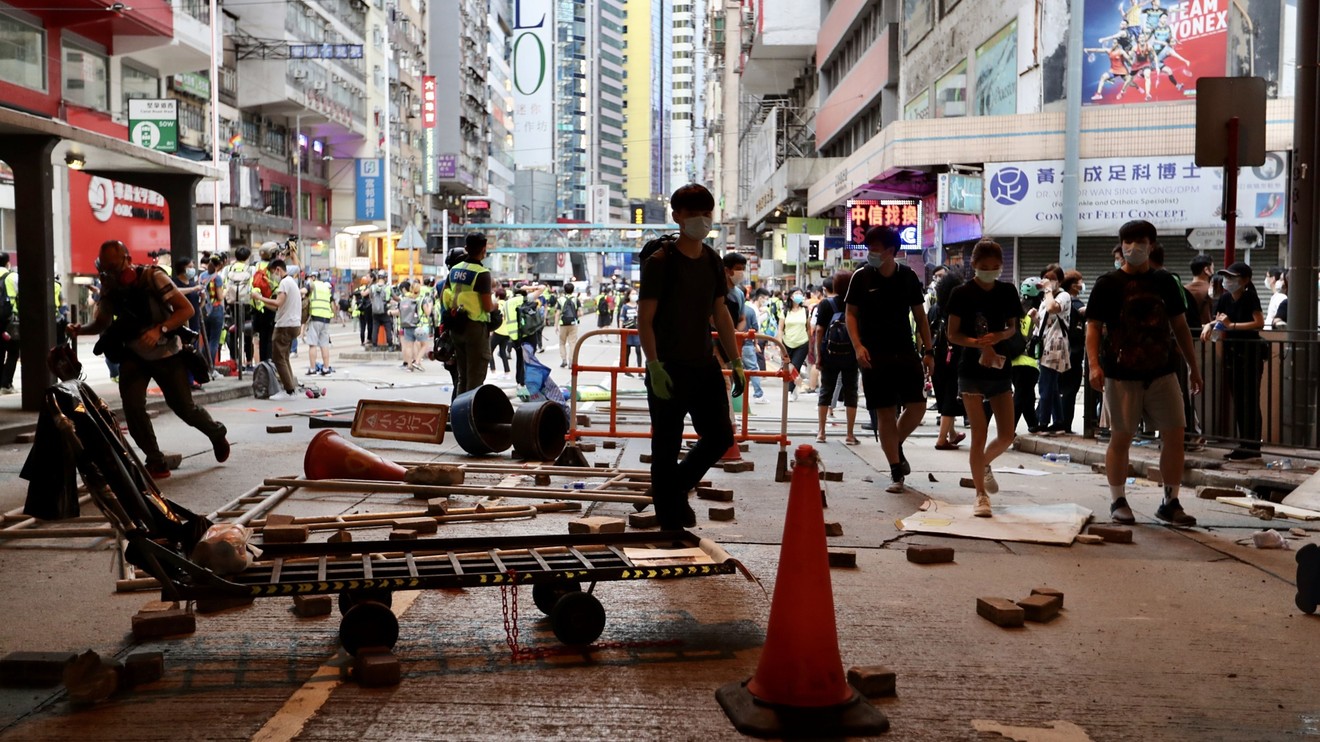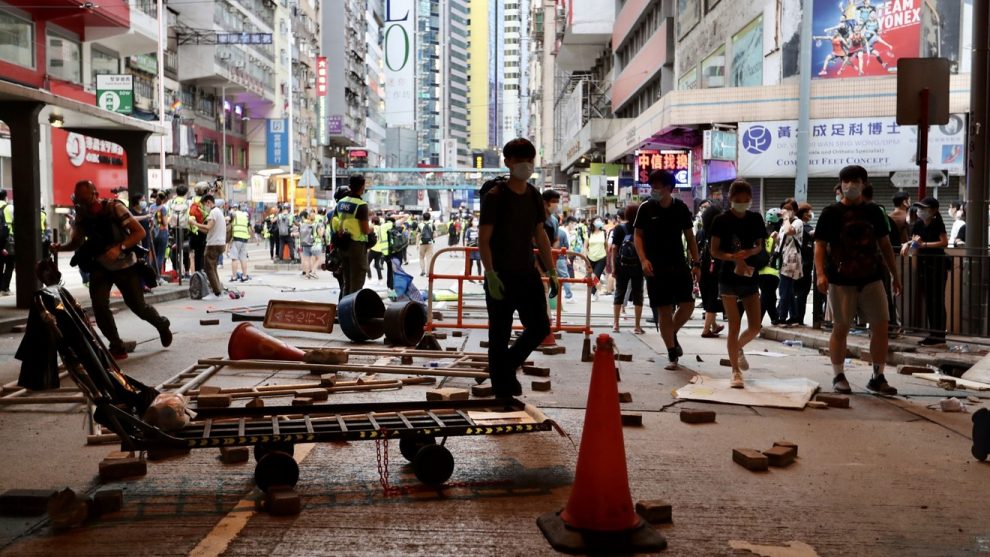
Asian markets were mixed in early trading Monday, as tensions between the U.S. and China rose.
Japan’s Nikkei NIK, +1.73% gained 1.5% while Hong Kong’s Hang Seng Index HSI, -0.47% fell 1%. The Shanghai Composite SHCOMP, -0.02% retreated slightly and the Shenzhen Composite 399106, -0.33% dipped 0.3%. South Korea’s Kospi 180721, +1.21% rose 0.7% while Taiwan’s Taiex Y9999, +0.55% declined 0.1%. Australia’s S&P/ASX 200 XJO, +2.15% rose 1.4%. Markets in Singapore and Indonesia were closed for holidays.
U.S. markets are closed Monday for the Memorial Day holiday.
U.S.-China relations have been souring as the Trump administration blames China for concealing the extent of the coronavirus outbreak months ago, blaming it for spreading the pandemic. But now a new bill proposed by China that would allow it to supercede Hong Kong’s local government is raising concerns about a crackdown on free speech and dissent.
The White House national security adviser Robert O’Brien said Sunday that China is likely to face U.S. sanctions if it approves the bill, and warned that it could lead to residents and companies fleeing the city and the end of its status as a global financial hub.
“One reason that they came to Hong Kong is because there was the rule of law there, there was a free-enterprise system, there was a capitalist system, there was democracy and local legislative elections,” he said on NBC’s “Meet the Press.” “If all those things go away, I’m not sure how the financial community can stay there.”
Meanwhile, China’s Foreign Minister Wang Yi said Sunday that the U.S. should end its “wishful thinking” that it will force China to change, and warned that some U.S. officials are pushing relations “to the brink of so-called ‘new Cold War.’ This is dangerous and will endanger global peace,” Bloomberg News reported.
“The air remains thick with caution,” Stephen Innes, chief global markets strategist at AxiCorp, wrote in a note. “Hong Kong equity traders are buckling up for the second leg of declines in 2020. . . . With more riots in the street amid the knockdown effects of COVID-19 and a possible exodus of jobs from the city’s financial center, surely things will get much worse before better.”
Pro-democracy demonstrators in Hong Kong on Sunday were met by police using tear gas and a water cannon, and dozens of protesters were arrested.
U.S. stock index futures rose slightly late Sunday. Stocks were little changed on Friday but for the week, the Dow DJIA, -0.03% climbed 3.3%, the S&P 500 SPX, +0.23% advanced 3.2% and the Nasdaq Composite COMP, +0.42% rose 3.4%.
Oil prices rose, with benchmark U.S. crude CLN20, +0.66% advancing to $33.60 per barrel in electronic trading on the New York Mercantile Exchange, while July Brent crude oil BRNN20, +0.11% , the global benchmark inched up to $35.32 a barrel.
The U.S. dollar USDJPY, +0.08% fetched 107.70 Japanese yen, up slightly.











Add Comment